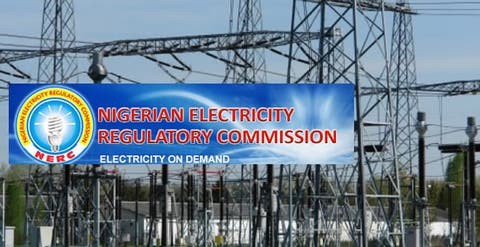NERC to Deploy Data Loggers to Monitor Defaulting Discos
Nigerian Electricity Regulatory Commission (NERC) is set to deploy data loggers in all power feeders belonging to Distribution Companies (Discos) to prevent them from ripping Nigerians off, following the transition of tariffs regime to the number of hours supplied.
A data logger is a specialised electronic device that measures and records specific data over a certain period of time or in relation to its location either with a built-in instrument or sensor or through external instruments and sensors.
Power consumers in the country have consistently complained since the release of the new service-based system on September 2 that giving the electricity distributors the freedom to determine and bill customers based on the number of electricity supplied was susceptible to abuse by the Discos.
Speaking during an online town hall meeting at the weekend, organised by NERC, the agency’s Commissioner in charge of Legal, Licensing and Compliance of the regulatory agency, Mr. Dafe Akpeneye, said the devices would ensure strict monitoring of power that gets to the final consumers to make sure there’s no discrepancy between data on Discos’ figures and the actual number of hours supplied.
NERC, however, failed to outline any sanctions that would be meted out to the defaulting Discos, but disclosed that after the adjudication process in cases where such complaints arise, the area or customer would be immediately reverted to a lower band depending on the supply deficit.
He said: “Customers have two payment options (for meters), the one-time payment and the installments option, so the Discos will take this into cognisance and meters will be installed on that basis during the meter rollout.
“If they (Discos) do not improve your service they cannot increase the tariff. From the monitoring standpoint, there’s going to be two-way monitoring. The commission is going to be installing data loggers in feeders for Discos and customers can lodge complaints.
“So, when the complaints are lodged and customers promised 20 to 24 hours were not provided that service, or only got 12 hours of supply, at the end of that adjudication process, the Discos have to transition those customers to the tariffs of customers who enjoy 12 hours of supply.”
On how the billing regime related to the number of hours was arrived at, Akpeneye said the hours were decided by the commission after consultations with Nigerians and the Discos.
He noted that there would soon be an upgrade and change of all the outdated meters in the country, but noted that before then, Discos must adhere to the capping methodology for non-metered customers.
“If they believe you are paying less than you consume, they should provide you a meter.
“There will be infrastructure to monitor the Discos and also the app that will be launched for customers to lodge their complaints. If the Disco doesn’t provide service that’s guaranteed, you will be moved to a lower band,” he noted.
While admitting that the Discos remain the weakest link in the supply system, he added that the meter penetration in the country was slowed down by the duty imposed by the government, but opined that with the intervention of the federal government, Nigerians would soon have access to the facility.
On the call for the imposition of a penalty on Discos that fail to supply the number of hours promised customers or compensation for consumers who are under-supplied, NERC stated that it might not be necessary since those, who haven’t been supplied the designated number of hours, haven’t also consumed their power units.
NERC maintained that the sector was in dire need of massive investment, which despite over N2 trillion intervention in recent times, did not make any marked difference in the supply chain.
“The sector is seriously constrained and that’s why the government has had to intervene by providing N2 trillion in support to ensure that the generators who generate power can still be in a position to do so. What we are doing is to ensure that investment can be done and everyone can be lifted out.
“Nobody takes pride in the fact that some people are in darkness. Some are not even connected to the grid. We have to have an investment. In the past, there was a blanket increase and it didn’t work. And Nigerians said they won’t pay based on promises of improvement.
“So, we have taken cognisance of the service they get and that’s how the rates were determined. Those on less than 12 hours are not increased. The industry is being incentivised. When (Discos) come to the banks (for loans), they (banks) do not see the line of payment, but now they can see and project revenues,” the commission noted. (Thisday)


